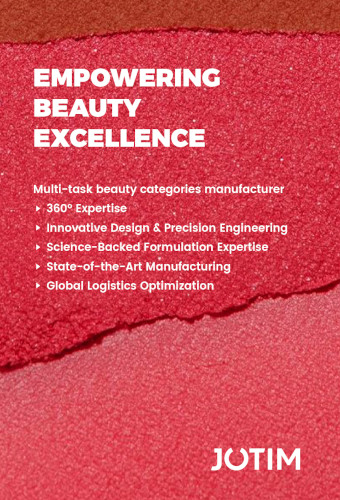With what it calls a "lab-on-a-chip", L’Oréal Groupe wants to hl consumers understand "their skin’s aging trajectory" and enable them to more easily choose works best for their needs.
Predictive analysis
Named Cell BioPrint, the tabletop hardware device provides personalized skin analysis in just five minutes, using “advanced proteomics” – the science of how protein composition in the human body affects skin aging.
Thus, L’Oréal Cell BioPrint can calculate the skin’s biological age and provide personalized advice on how to slow down the appearance of aging. The tool can also assess ingredient responsiveness and predict the active ingredients that will work best on one’s skin. By forecasting potential cosmetic issues (such as dark spots or enlarged pores) before they become visible, L’Oréal Cell BioPrint also enables users to take proactive steps to help protect the beauty of their skin.
Skin biomarkers
The analysis conducted by Cell BioPrint is based on what L’Oréal calls “Longevity Integrative Science,” an approach that reveals how mechanisms in the human body can affect skin’s appearance.
In particular, L’Oréal’s Advanced Research team has identified unique biomarkers in the skin that can indicate key components of healthy-looking skin and longevity [1].
Microfluidic chip
For this achievement, the beauty giant has teamed up with the South Korean start-up NanoEnTek, a specialist in the design of electronic devices for point-of-care tests (POCT) based on microfluidic chips designed to perform various tests in a very short time with a very small amount of biological samples, and analyze the results.
The technology, which leverages some of NanoEnTek’s 100+ patents, enables the device to measure in five minutes the presence of the protein biomarkers identified by L’Oréal.
Cell BioPrint works through a non-invasive process. A facial tape strip has to be applied on one’s cheek, then removed and placed into a buffer solution, then loaded into the device for analysis. While L’Oréal Cell BioPrint processes the sample, the Skin Connect device takes several images of one’s face and a short questionnaire about skin concerns and aging is completed.
Asia launch
L’Oréal Cell BioPrint is scheduled to pilot with a L’Oréal brand in Asia later in 2025.
According to L’Oréal, the growth of the global skincare market, is driven by consumers who are continuously seeking more information about, and more efficacious products for, their unique skin. Furthermore, a recent US survey of 2,000 skincare users revealed that nearly 80% of them rely on trial and error to determine what worked for them, with the average person reporting trying seven different cleansers before finding one they love [2].








































